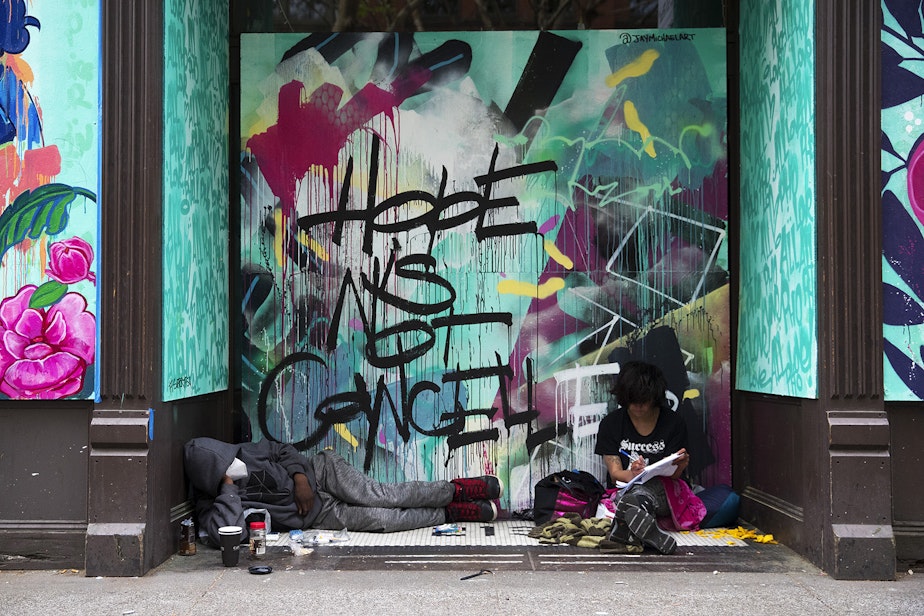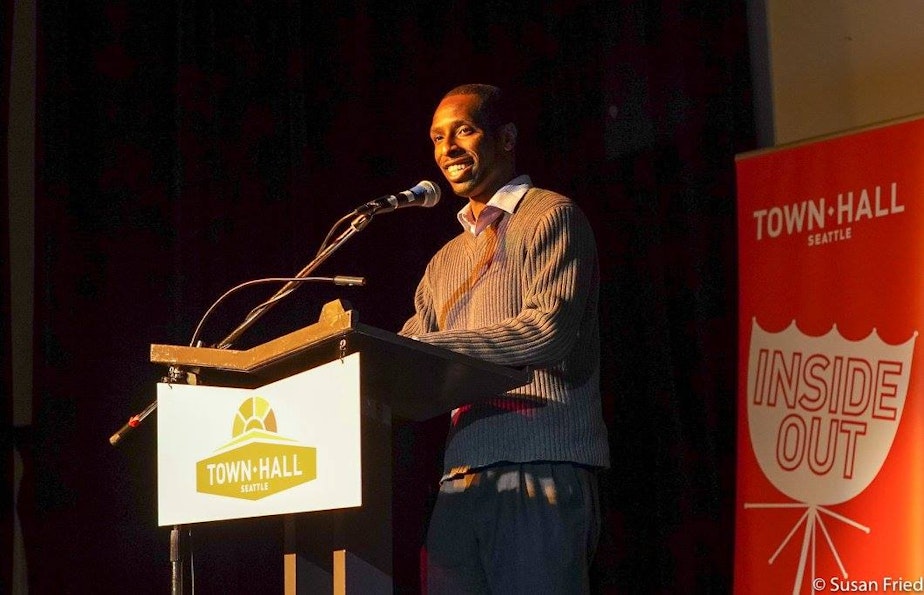‘Only defeated if you stop fighting’: The slow march forward for Seattle’s Black communities

Marcus Harrison Green is a Black man who grew up in South Seattle. Today, he is the publisher of the South Seattle Emerald and columnist for the Seattle Times.
He spoke to KUOW's Morning Edition about how Seattle has changed, after George Floyd was killed, but also long before that day in Minneapolis which spurred movements across the country.
Even as Seattle flourished throughout its history, Green says the Black community was not uplifted or affirmed.
"The community is just trying to survive, quite frankly," he says. "And you can only do that for so long."
Black people were already leaving this city as it grew into a tech giant and neighborhoods were quickly gentrified; The Seattle Times reports the city's housing market has been growing at the second-fastest rate in the country for more than a year now.
Green says ongoing gentrification coupled with the pandemic forced even more people out.
"I can't identify one mechanism in terms of something that would lead an influx of Black people back to the city," he says.
Sponsored
Seattle will elect a new mayor this year. Most, if not all, of the candidates in that race have had to address Floyd's murder and the demonstrations that followed in some way. But he's blunt about how he expects them to put forward plans to "appease some folks who are demanding additional police accountability in this very progressive city that we claim to be."
Maybe that's cynical, he says.
Then again, Green has never been one to invest his hope for a brighter future in the idea that a great political leader will emerge to lead the way. He prefers to put that faith in individual people, like those who rallied for racial equity and justice after Floyd (and many others) were killed.
"You have to keep speaking the truth," Green says. "These things take a great deal of time ... and that's OK, but you have to continue to fight, right? And you are going to lose. You are going to lose a lot, right? But you are only defeated if you stop fighting. You are only defeated if you stop telling the truth. You are only defeated if you give in and just go ahead on with the status quo and say 'this is good enough for me.'"

Sponsored
As a columnist and longtime Seattle journalist, Green has made a career of speaking the truth. He makes his case for continuing that fight in a book of essays called "Readying to Rise" that will be published later this year.
He acknowledges he's asking people to see the truth as a time when that's not so easy to define.
"I think it's so hard to tell the truth many times because so few people [in this country] can agree on what the truth actually is," he says.
Part of the truth is acknowledging that gentrification, displacement and racism "aren't magic; they come from people."
"But guess what? Anywhere you have people, you will also have possibility and inspiration and aspiration and love and hope and joy," he says.
Sponsored
Green's South Seattle Emerald and The Seattle Times co-published his column "To Heal Our Collective Trauma, We Must First Face It," which will be among the essays in his upcoming book. And in that column, he explored what happens when we choose to simply move on from trauma rather than heal, individually and collectively.
"We're doomed to repeat this cycle unless we begin prioritizing healing in a culture that never has — a mighty task that begins with acknowledging that our pain is prominent but not all we are," he wrote in February, following the January 6 U.S. Capitol insurrection. "Even in this day, our society remains capable of transmitting love, empathy, compassion and remembrance that you are more than the hurts that drive you. It is no small reminder."
Green's book "Readying to Rise" will be published on September 21.





